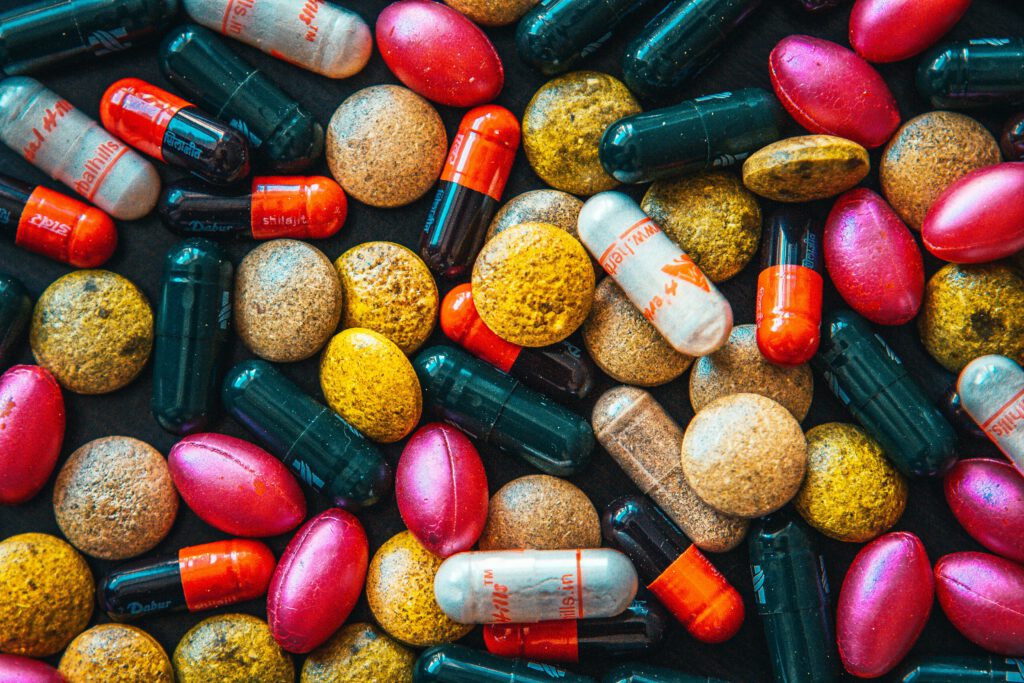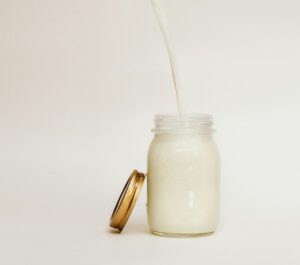If you’ve popped a multivitamin and thought you were good for the day and didn’t need to eat healthy, you’d be wrong. While even the most natural of multivitamins contain essential vitamins and minerals, they aren’t always processed by the human body or require certain phytonutrients, nutrients from plants, to boost their effectiveness. That’s why eating healthy and choosing food that is healthy is important. It’s also important that your diet contains a multitude of colorful vegetables and fruits for maximum benefit.
Start alphabetically with vitamin A.
The name vitamin A is a bit deceptive, since it’s a group of organic compounds that include beta-carotene and retinol, to name a few. It’s fat soluble, which means it requires fat to dissolve and it’s stored in fat tissues, so potentially, you can get too much. That only occurs for some forms of vitamin A. It plays an important role in the immune system and the functioning of the heart, lungs and kidneys. Lack of vitamin A is associated with eye diseases, skin problems from hair follicles and poor bone growth. Beef liver, frozen spinach, raw carrots and baked sweet potatoes are good sources.
Vitamin C is best known for boosting immune functioning.
The body needs vitamin C to repair tissue and keep the skin, bones and teeth healthy. It’s an antioxidant, so it protects cells from free radical damage and damage from toxins, including radiation. You need vitamin C to absorb iron in the intestines, too. Scurvy was once a problem, particularly for people aboard ships. It’s caused from lack of vitamin C. In fact, the British navy used lime juice to help cure scurvy in the beginning of the 19th century, so limey became a slanderous term for people in the British Royal Navy. Signs of scurvy are swelling gums, fatigue corkscrew hairs and bad wound healing. It’s water-soluble, so excess flushes out with urine, but too much can upset your stomach and lead to kidney stones. Raw red peppers, citrus fruit like limes, broccoli and baked white potato contain higher amounts of vitamin C.
Vitamins D and E are both important.
Vitamin D is important for your immune system. In fact, studies show a link between the development of complications from covid-19 and low vitamin D levels. It also helps mineralization of bones and teeth, maintaining normal calcium levels in the blood and reducing inflammation. The body makes vitamin D when exposed to the sun, so safe sunning is the easiest way to get it, but cod liver oil and salmon also has a lot. Vitamin E helps blood vessels widen and prevents clotting. It’s also an antioxidant that protects cells. Deficiency can occur due to malabsorption and cause anemia, immune system weakness, muscle weakness and fatigue. Wheat germ, sunflower seeds, almonds and peanut butter contain vitamin E.
- Vitamin K found in collard and turnip greens, kale and spinach, helps form blood clots. It also plays a role in bone and dental health. Deficiency is rare, since gut bacteria make it.
- Riboflavin is vitamin B2. It’s in beef liver, clams, yogurt and protabella mushrooms. It’s important for cell growth, skin, hair, nails and eyesight. Cracks on the corners of the mouth and on lips indicate a deficiency. Too much alcohol can cause a deficiency.
- Niacin—vitamin B3—helps gut, nerve and skin health and assists in providing cell energy. It comes from beef liver, chicken breast and tuna. Folic acid—B-9—helps cell growth and is found in beef liver, cereal and frozen spinach.
- Vitamin B12 is important for the nervous system and the creation of RNA, DNA, fats and proteins. It helps build red blood cells. It’s found in beef liver, ground beef, clams and salmon.
For more information, contact us today at 180 Fitness



